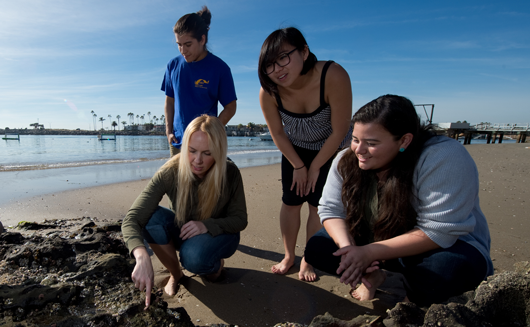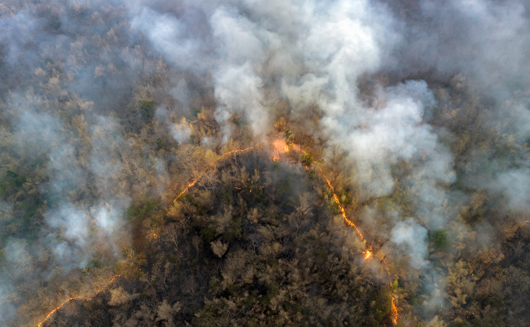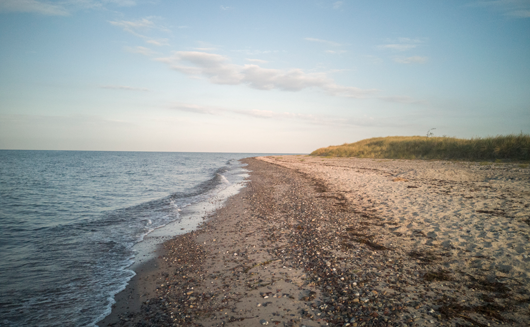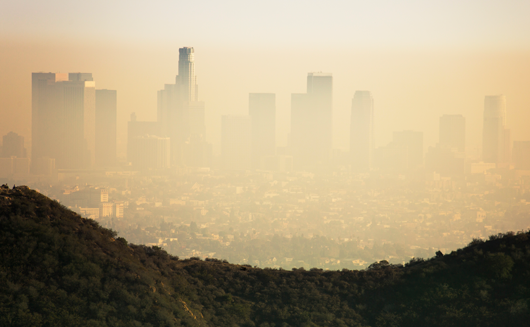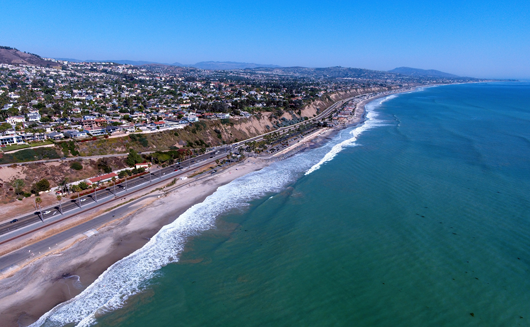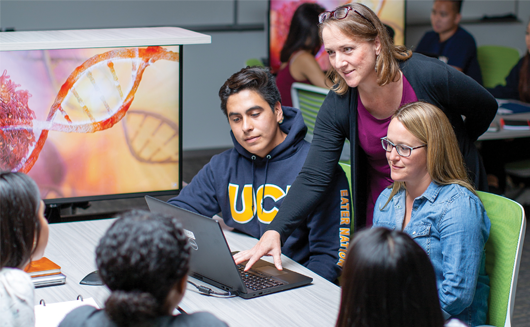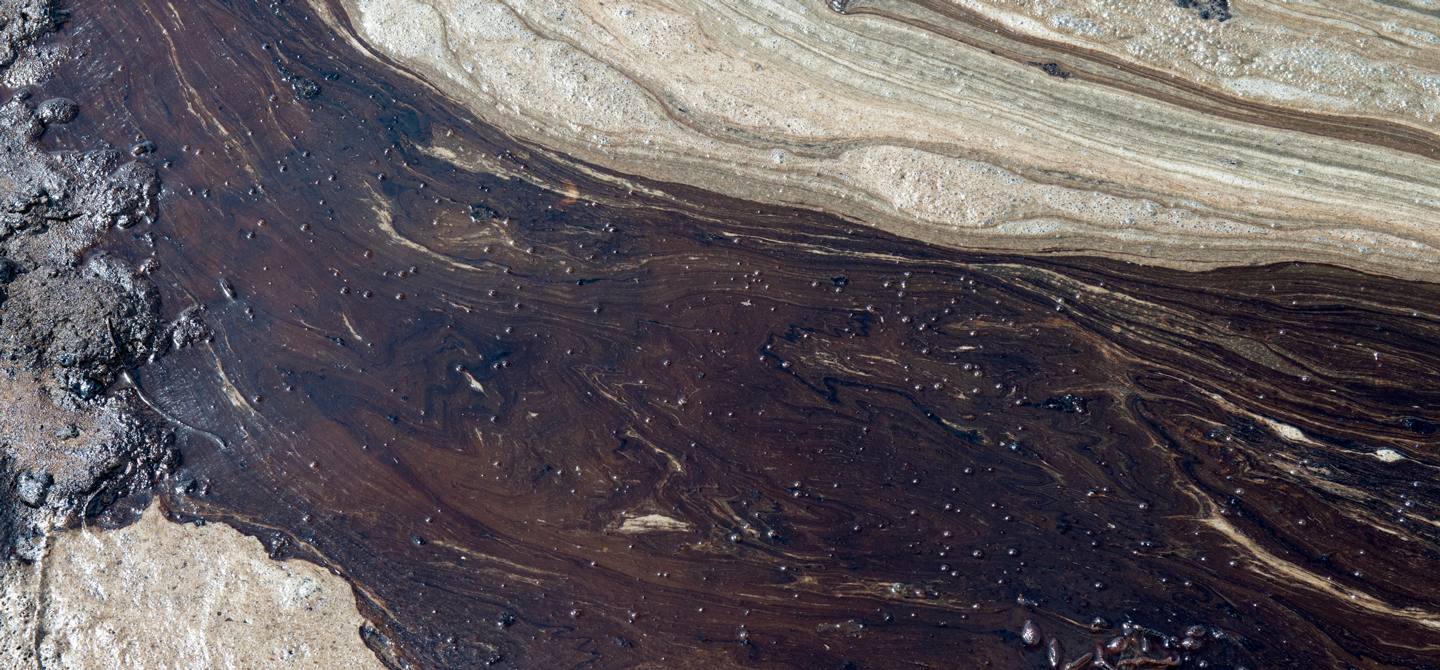
Rapid research response
UCI scientists study the effects of an oil spill on Orange County's coastline
Many UCI scientists will tell you that our petroleum addiction is the root cause of the long-term climate crisis facing California and the rest of the world, but it’s also forcing us to deal with more immediate problems.
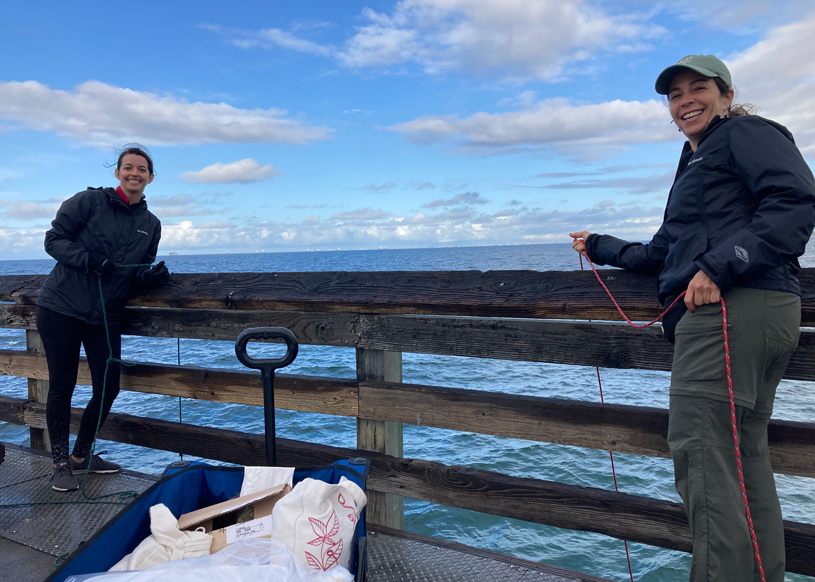
During the first weekend of October, people strolling the shore in Huntington Beach began noticing a sheen on the water and golf ball-sized clumps of tar on the sand. It eventually became clear that a massive oil spill – likely caused by a ruptured underwater pipeline connecting an offshore drilling platform with an onshore processing plant – was threatening the Southern California coast.
“Our initial reaction was of great sadness,” says Joana Tavares, a Ph.D. candidate in Earth system science. “Like most people, we were heartbroken by the images of dead fish washing ashore and seabirds covered in oil. Then, of course, being the phytoplankton nerds that we are, we started thinking of the many ways in which an oil spill like this one can affect marine microorganisms.”
Tavares and Melissa Brock, a Ph.D student in ecology and evolutionary biology, are spearheading the newly formed Southern California Oil Spill Project at UCI. They are analyzing the composition and health of the phytoplankton and bacterial communities in the ocean and inland waterways, using samples collected before, during, and ultimately after the oil spill situation has played out.
They have a strong basis for that comparison because legions of UCI graduate and undergraduate students for the past decade have collected water and sea life specimens from Newport Pier and other spots along the coast. Normally done on weekly or monthly intervals, Tavares and Brock have increased the sampling frequency to a few times a week.
"The moment we learned about the oil spill, I could see how a light turned on in the students... Here was a local environmental issue where they could really make a difference. Not only do they bring a lot of technical skills; they bring a strong desire to collaborate as well as the ability to instantly connect with a large group of peers in Southern California."- Adam Martiny
“We know that crude oil and other fossil fuel products will affect various types of microorganisms differently,” says Brock. “Some will die because of toxins contained in the oil, while others may be more resilient.”

Understanding the impact of an oil spill on these microscopic organisms is important because they are the base of the marine food web, they help regulate the chemical balance of the marine environment, and they both produce oxygen and remove carbon dioxide from the atmosphere.
The So. Cal. Oil Spill Project is a truly cross-disciplinary endeavor. The researchers – representing Prof. Katherine Mackey’s group the Department of Earth System Science and Prof. Adam Martiny’s laboratory, which straddles ESS and the Department of Ecology and Evolutionary Biology – are relying on oil spill plume maps generated by the Coastal Dynamics Laboratory headed by Kristen Davis, UCI professor of civil and environmental engineering.
The team includes Christopher Olivares, UCI assistant professor of civil and environmental engineering, and his Ph.D. student Jialin Dong, who are helping to measure polycyclic aromatic hydrocarbons in the water, a key indicator of a pollutant that can harm microbial life.
And the work extends beyond UCI. The team is sending glob samples to UC Santa Barbara Prof. David Valentine, who will use forensics methods to characterize the material. And they’ve been in touch with Prof. Kimberly Prather’s lab at UC San Diego, which uses mass spectrometry methods to detect volatile organic compounds in marine aerosols.
“The moment we learned about the oil spill, I could see how a light turned on in the students,” says Martiny. “Here was a local environmental issue where they could really make a difference. Not only do they bring a lot of technical skills; they bring a strong desire to collaborate as well as the ability to instantly connect with a large group of peers in Southern California.”
Tavares says the project is an opportunity for graduate students like herself to get involved in increasing awareness about the less obvious effects of environmental disasters such as oil spills.
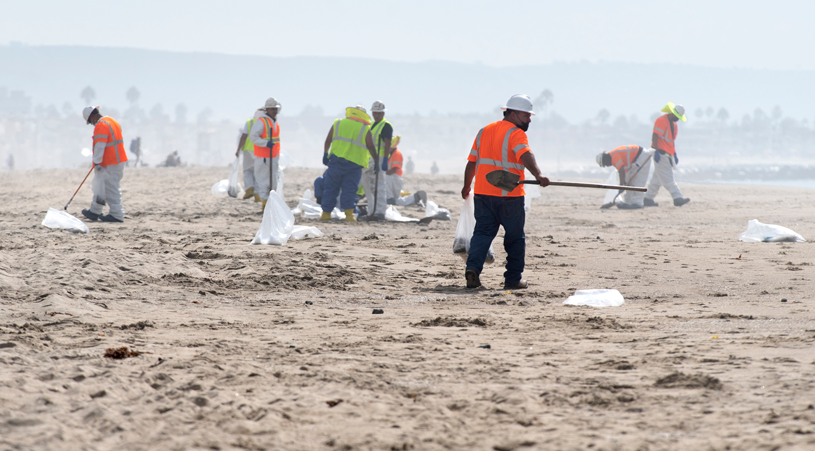

“Oftentimes, public attention will decline once the visible evidence of an oil spill has gone away. Out of sight, out of mind, right? But the reality is that some of the oil from a spill will either dissolve in seawater or sink and accumulate on the bottom of the ocean,” she adds. “So, we see here a chance to educate the public about these invisible effects.”
Brock says they are also using this moment as an opportunity to train undergraduate students and involve them in research that is important to the local community.
Matt Bracken, UCI professor of ecology and evolutionary biology, also has been monitoring the oil spill situation and has shared his expertise in numerous media interviews of the past week and a half.
“The recent oil spill is a tragedy but also an opportunity to understand how an event like this one can change our local oceans,” he says. “One of my favorite quotes about the process of science comes from Albert Szent-Györgyi, Nobel-Prize winner and member of the National Academy of Sciences, who said, ‘A discovery is said to be an accident meeting a prepared mind.’ The spill offers a chance to understand the impacts of human-caused change to an ocean system, and Joana and Melissa are well-prepared to make key discoveries based on this ‘accident.’"
– Brian Bell, UCI
